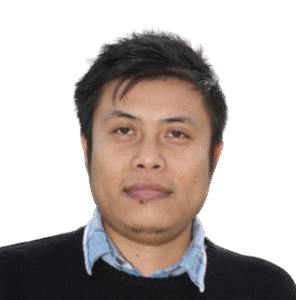Sapam Ningthemba Singh’s Interview
Starting date: 1.08.2024
Nationality : Indian
Implementing Partner : Technical University of Munich
Main supervisor: Dr. Michael Schulz

Few words about you and your research project
Hi, I am Sapam Ningthemba Singh, currently working as a GNeuS post-doctoral fellow in the Dr. Michael Schulz group, ANTARES, FRM II, Technical University of Munich.
My research investigates the defects in additively manufactured parts by employing neutron imaging. It also investigates the defect nature, and evolution of internal defects present in the additively manufactured parts. The research further deals with different post-processing methods like shot peening, heat treatment on the defects, their evolution, and effects on the mechanical properties of the additively manufactured parts.
The research is in collaboration with Dr. Lengsdorf at INPECA as non-academic secondment partner and Prof. Wesmuth at Karsluhe Horschule as academic partner. At INPECA, sample preparation and post-processing will be carried out. At Hochschule Karlsruhe, optical microscopy, electron microscopy, and fractography will be carried out.
What is your background? How have you heard about GNeuS?
I received my PhD from the National Institute of Technology Silchar (NIT Silchar). The doctoral research was on the laser shock peening of additively manufactured Ti6Al4V alloy. The primary research focus included defect and, microstructural analysis, tensile and fatigue properties of the manufactured parts as well as the effect of laser peening on the additively manufactured parts. The research was conducted with collaboration and research assistance from Meltio, Monotech 3D, and other research partners. I attended the MATTRAC II school and knowledge of different neutron experiments and methods were gained during the school.
As my PhD research was about to be completed, I was looking for the next research endeavor, and I came to know about the GNeuS through Google and also from the EURAXESS portal.
Why did you apply specifically on GNeuS?
As I was completing my PhD research, I found the GNeuS advertisement and one of the project ideas about additive manufacturing by Dr. Michael Schulz, was very well suited to my research interest.
Being in MSCA, I really liked the GNeuS program, and the secondment programs being offered during the project will help me further gain experience in a wide range of scientific applications.
This will give me the opportunity to collaborate with industries and other academic institutions and help me become an experienced researcher.
What impacts do you expect from the GNeuS fellowship?
The research is expected to provide important understanding of the internal defects, their evolution, and their impacts on the mechanical properties of the additively manufactured parts.
As a part of the non-academic secondment, the industrial experience will further be enhanced at the INPECA GmbH by preparing the additively manufactured samples there along with post-processing of the samples.
Academic secondment at Hochschule Karlsruhe will provide the opportunity to conduct research and gain further research skills outside of the neutron-based research.
The opportunities provided by GNeuS like attending different schools, attending conferences, and improving soft skills will help me to establish myself as an experienced researcher.
